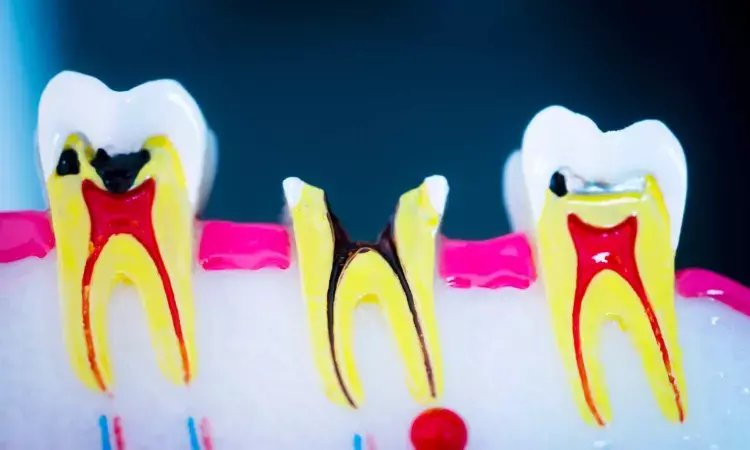- Home
- Medical news & Guidelines
- Anesthesiology
- Cardiology and CTVS
- Critical Care
- Dentistry
- Dermatology
- Diabetes and Endocrinology
- ENT
- Gastroenterology
- Medicine
- Nephrology
- Neurology
- Obstretics-Gynaecology
- Oncology
- Ophthalmology
- Orthopaedics
- Pediatrics-Neonatology
- Psychiatry
- Pulmonology
- Radiology
- Surgery
- Urology
- Laboratory Medicine
- Diet
- Nursing
- Paramedical
- Physiotherapy
- Health news
- Fact Check
- Bone Health Fact Check
- Brain Health Fact Check
- Cancer Related Fact Check
- Child Care Fact Check
- Dental and oral health fact check
- Diabetes and metabolic health fact check
- Diet and Nutrition Fact Check
- Eye and ENT Care Fact Check
- Fitness fact check
- Gut health fact check
- Heart health fact check
- Kidney health fact check
- Medical education fact check
- Men's health fact check
- Respiratory fact check
- Skin and hair care fact check
- Vaccine and Immunization fact check
- Women's health fact check
- AYUSH
- State News
- Andaman and Nicobar Islands
- Andhra Pradesh
- Arunachal Pradesh
- Assam
- Bihar
- Chandigarh
- Chattisgarh
- Dadra and Nagar Haveli
- Daman and Diu
- Delhi
- Goa
- Gujarat
- Haryana
- Himachal Pradesh
- Jammu & Kashmir
- Jharkhand
- Karnataka
- Kerala
- Ladakh
- Lakshadweep
- Madhya Pradesh
- Maharashtra
- Manipur
- Meghalaya
- Mizoram
- Nagaland
- Odisha
- Puducherry
- Punjab
- Rajasthan
- Sikkim
- Tamil Nadu
- Telangana
- Tripura
- Uttar Pradesh
- Uttrakhand
- West Bengal
- Medical Education
- Industry
Teeth with crestal bone loss more likely to be associated with Periapical disease

Researchers have found in a new study that Teeth with crestal bone loss were significantly more likely to be associated with a higher rate of periapical disease. Further Teeth with crestal bone loss were more likely to be root treated than teeth with healthy crestal bone levels.
The findings of the study have been published in the Journal of Clinical Medicine.
The aim of this study was to determine whether the degree of bone loss around teeth can be linked to the loss of vitality of adjacent teeth and periapical disease, which necessitates root canal treatments. Three hundred and twenty-one full maxilla cone-beam computed tomography scans were examined. The parameters investigated included the degree of crestal bone loss in relation to the cementoenamel junction, the presence/absence of apical periodontitis, and the presence/absence of root canal treatments. Out of the 2001 teeth examined, 696 (34.8%) showed evidence of crestal bone loss. The degree of crestal bone loss was classified as mild, moderate, or severe. A significant association (p < 0.001) was found between the presence of crestal bone loss around a tooth and root canal treatment of that tooth. It was found that it is more likely for teeth with crestal bone loss to be root canal treated compared to teeth with existing root canal treatment and healthy crestal bone levels. Furthermore, teeth with buccal or lingual crestal bone loss were significantly associated with a higher rate of periapical disease than teeth without crestal bone loss (p < 0.001). CBCT identified the severity of bone loss on all surfaces of the teeth, and the most common presentation was bone loss to the mid-root level. Teeth with crestal bone loss were significantly more likely to be associated with a higher rate of periapical disease. Teeth with crestal bone loss were more likely to be root treated than teeth with healthy crestal bone levels
Reference:
Mahasneh SA, Al-Hadidi A, Kadim Wahab F, Sawair FA, AL-Rabab’ah MA, Al-Nazer S, Bakain Y, Nardi C, Cunliffe J. A Cone Beam CT Study on the Correlation between Crestal Bone Loss and Periapical Disease. Journal of Clinical Medicine. 2023; 12(6):2423. https://doi.org/10.3390/jcm12062423
Dr. Shravani Dali has completed her BDS from Pravara institute of medical sciences, loni. Following which she extensively worked in the healthcare sector for 2+ years. She has been actively involved in writing blogs in field of health and wellness. Currently she is pursuing her Masters of public health-health administration from Tata institute of social sciences. She can be contacted at editorial@medicaldialogues.in.
Dr Kamal Kant Kohli-MBBS, DTCD- a chest specialist with more than 30 years of practice and a flair for writing clinical articles, Dr Kamal Kant Kohli joined Medical Dialogues as a Chief Editor of Medical News. Besides writing articles, as an editor, he proofreads and verifies all the medical content published on Medical Dialogues including those coming from journals, studies,medical conferences,guidelines etc. Email: drkohli@medicaldialogues.in. Contact no. 011-43720751


